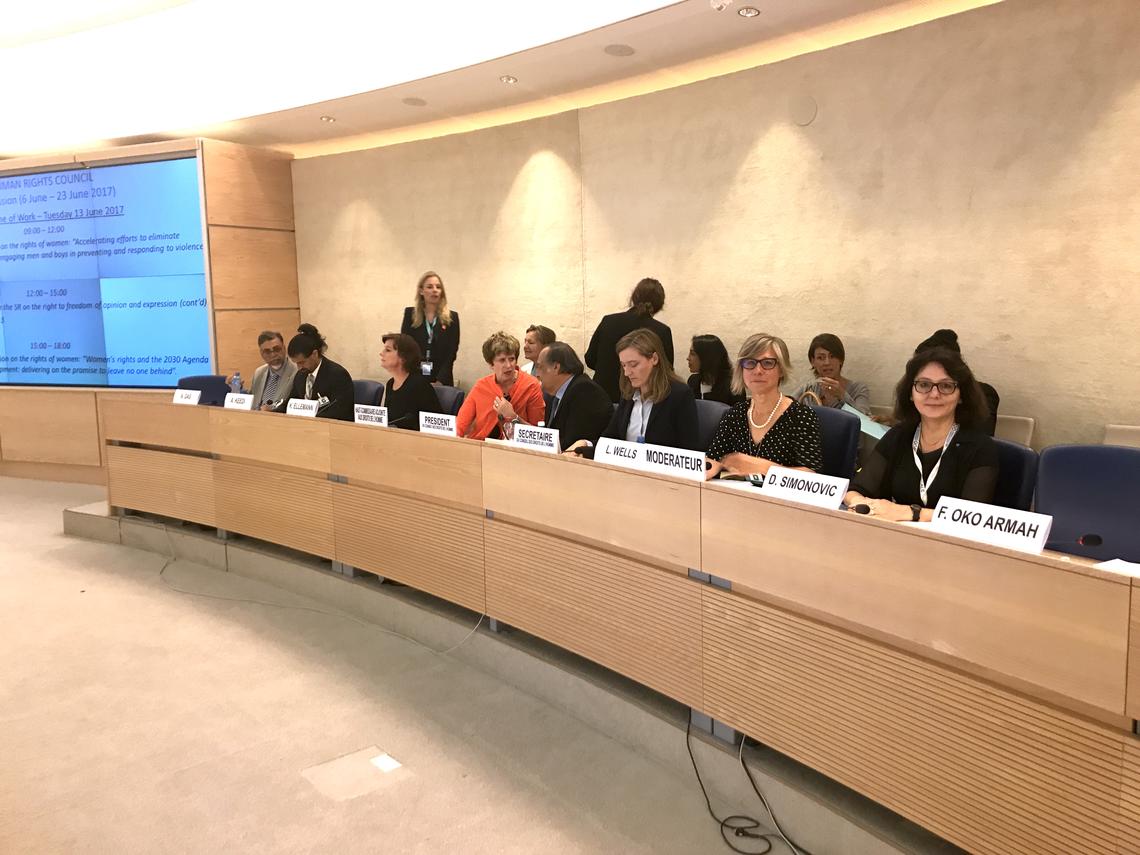Jan. 26, 2018
Lana Wells takes violence against women prevention work to the United Nations

Full-day panel discussion, 16th meeting of the 35th Regular Session of the United Nations.
Lana Wells
For many people, it feels like Oprah might be right, that for the millions of women who share the #metoo hashtag, there really might be “a new day” on the horizon, and it can’t come fast enough.
While the power of the individual stories is undeniable, the global enormity of violence against women is staggering. According to the World Health Organization, “one in three (35 per cent) women worldwide have experienced either physical and/or sexual intimate partner violence or non-partner sexual violence in their lifetime.” One in three.
Seen in this way, violence against women — particularly intimate partner and sexual violence — is clearly understood as a major public health issue and a violation of women's human rights. This is one reason why Faculty of Social Work researcher Lana Wells, the Brenda Strafford Chair in the Prevention of Domestic Violence, was happy to take her work to the United Nations.
Policy as a tool to transform lives
Wells and her research team, Shift: The Project to End Domestic Violence, focus their work on advancing evidence-informed primary prevention approaches, with a specific focus on influencing governments and policy-makers. As a result, in 2015, Wells’s research came to the attention of the Permanent Mission of Canada in Geneva, who along with the Office of the High Commissioner for Human Rights, invited Wells to present at the launch of the 16 Days of Activism Against Gender-Based Violence in Geneva, Switzerland.
“It was so exciting to get the call from the Permanent Mission of Canada,” says Wells. “In particular I was excited about the opportunity to share our research on engaging men and boys in violence prevention and advancing gender equality through policy. Having the opportunity to influence policy development at the global level was a dream come true.”
Her work clearly impressed the international audience, and Wells has become an important part of the global conversation about preventing violence against women. In the following months and years Wells presented at a number of high-level panel discussions and events, which recently culminated in an invitation to support the development of a new international recommendation that reflects her work in engaging men and boys to prevent violence against women.
The recommendation: Engaging Men and Boys in Preventing and Responding to Violence Against Women and Girls in Support of the CEDAW (Convention on the Elimination of All Forms of Discrimination against Women) General Recommendation No. 19: Violence Against Women, was accepted following an important full-day panel discussion moderated by Wells during the 16th meeting of the 35th Regular Session of the United Nations Human Rights Council, June 13, 2017. The panel discussion educated member states on the new General Recommendation along with the implications to government’s violence prevention policies and programs, which is an approach fundamental to Wells and her team.
“It was an honour to moderate the Human Rights Council Meeting and take part in the writing of a new recommendation that supports CEDAW,” reflects Wells. “The inclusion of men and boys as co-beneficiaries and key stakeholders in stopping violence against women signals a significant discourse change that needs to happen worldwide.”
